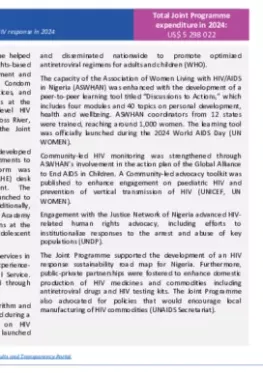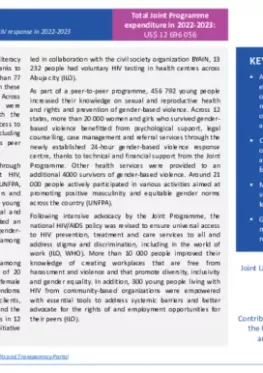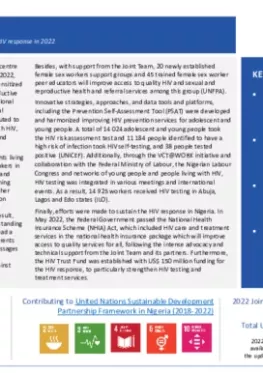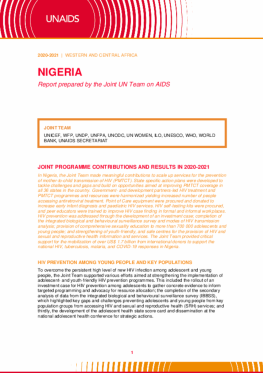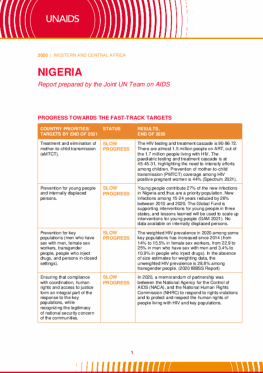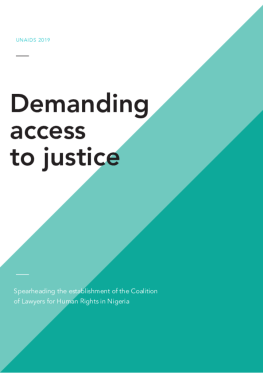|
Nigeria
In 2024, coordinated efforts of the Joint Programme helped advance HIV prevention, education and rights-based programming in Nigeria, with strong youth engagement and capacity building at national and community levels. Condom programming was expanded to promote safe practices, and stakeholders actively engaged in global discussions at the International AIDS Conference in Munich. State-level HIV prevention plans for Akwa Ibom, Anambra, Borno, Cross River, Lagos States were drafted with support from the Joint Programme (UNICEF, UNFPA, UNAIDS Secretariat).
The West and Central Africa (WCA) advocacy kit was developed and validated as part of the WCA Ministerial commitments to HIV prevention (UNESCO). A coordination platform was inaugurated for Family Life and HIV Education (FLHE) desk officers, ensuring quarterly virtual engagement. The “Softlife247” digital platform was completed and launched to disseminate comprehensive sexuality education. Additionally, support was provided to the Digital Young Filmmakers Academy to enhance FLHE delivery, and co-sponsored sessions at the National HIV Prevention Conference focused on adolescent development (UNESCO).
Evidence-based HIV prevention, treatment and care services in correctional facilities were enhanced by supporting experience-sharing and workshops for the Nigerian Correctional Service. Capacity for service coordination was strengthened through mentoring and supervision (UNODC).
The national adoption of the HIV three-tier test algorithm and the development of a national protocol were facilitated during a five-day workshop. Updated national guidelines on HIV treatment, care, and support were reviewed, finalized, launched and disseminated nationwide to promote optimized antiretroviral regimens for adults and children (WHO).
The capacity of the Association of Women Living with HIV/AIDS in Nigeria (ASWHAN) was enhanced with the development of a peer-to-peer learning tool titled “Discussions to Actions,” which includes four modules and 40 topics on personal development, health and wellbeing. ASWHAN coordinators from 12 states were trained, reaching around 1,000 women. The learning tool was officially launched during the 2024 World AIDS Day (UN WOMEN).
Community-led HIV monitoring was strengthened through ASWHAN’s involvement in the action plan of the Global Alliance to End AIDS in Children. A Community-led advocacy toolkit was published to enhance engagement on paediatric HIV and prevention of vertical transmission of HIV (UNICEF, UN WOMEN).
Engagement with the Justice Network of Nigeria advanced HIV-related human rights advocacy, including efforts to institutionalize responses to the arrest and abuse of key populations (UNDP).
The Joint Programme supported the development of an HIV response sustainability road map for Nigeria. Furthermore, public-private partnerships were fostered to enhance domestic production of HIV medicines and commodities including antiretroviral drugs and HIV testing kits. The Joint Programme also advocated for policies that would encourage local manufacturing of HIV commodities (UNAIDS Secretariat).


